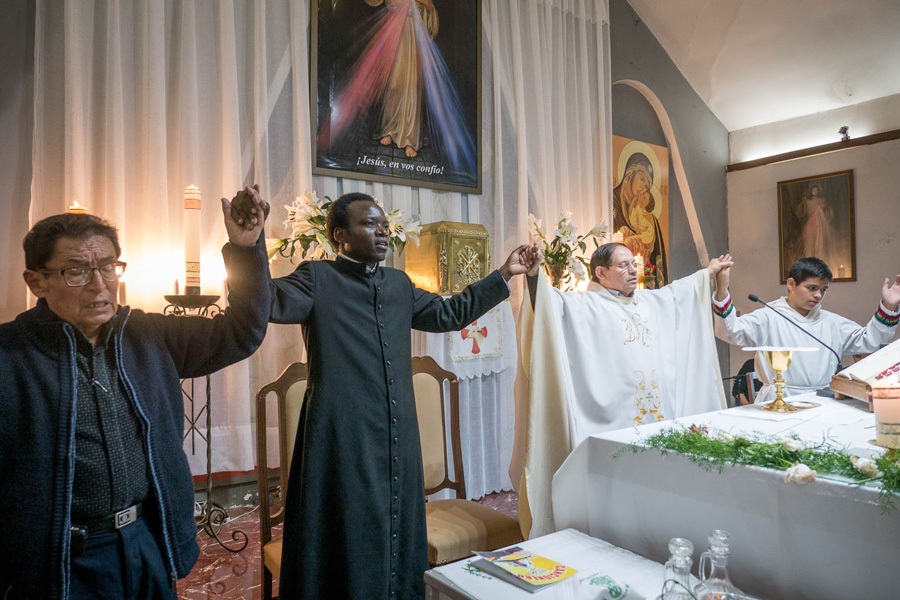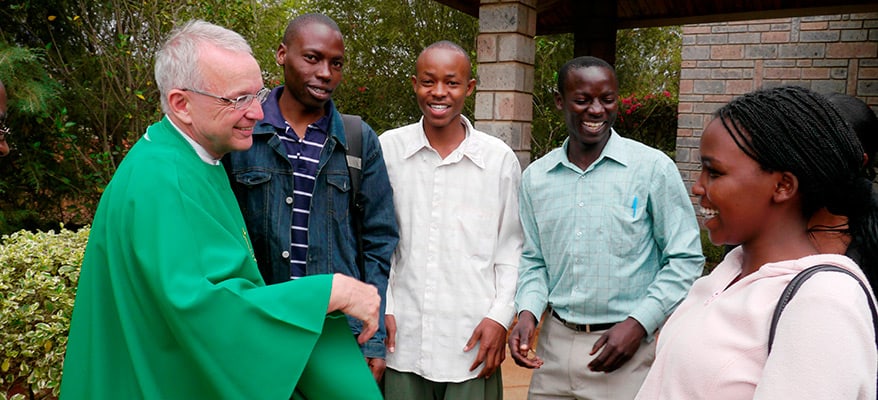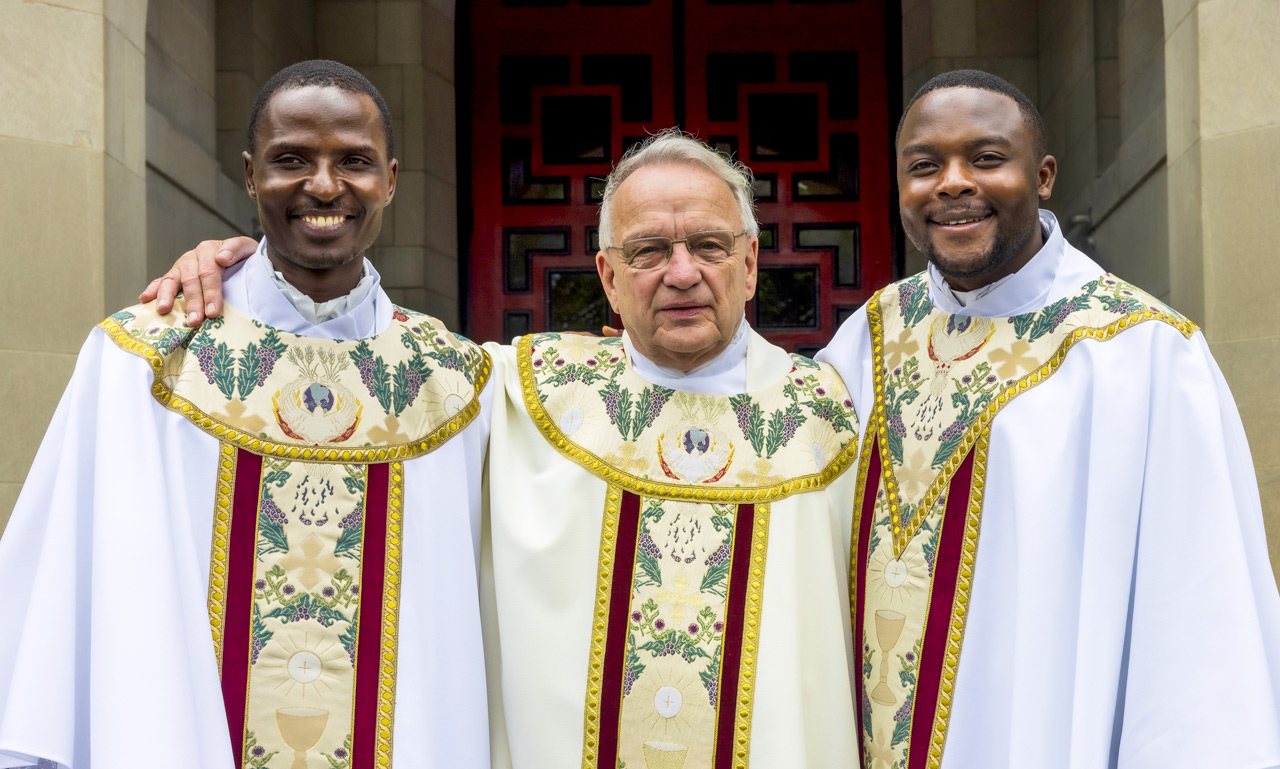Knowing God as Compassionate Father
Christian creeds address God as “the Father, the almighty.” Calling God “Our Father” is a personal address, asserting his care for all creation, especially for all humanity. God is called “Father” 170 times in the Gospels [Mark (4); Luke (15); Matthew (42); John (109)].
Prayer to the Father. God’s fatherhood is a clear hallmark of Jesus’ life and prayer. Frequently, Jesus prays to his Abba. He calls God “my Father” (Mt 11:26; Lk 10:21). His mission is from the Father (Jn 11:41-42). During the last supper he addresses his Father (Jn 17:1, 5, 11, 21, 24, 25). Jesus turned to his Abba in the crisis moments of his life: Gethsemane (Mk 14:36; Mt 26:42), Calvary (Lk 23:34). His dying words are: “Father, into your hands I commend by spirit” (Lk 23:46).
Expressing Our Faith. Addressing God as “Our Father” is already an act of faith; it reflects both our relationship to God and to others. Jesus taught his disciples this prayer on different occasions. The New Testament preserves two versions: Matthew 6:9-13 and Luke 11:2-4. Because Jesus the Lord taught this prayer to his disciples, it is known as the “Lord’s Prayer.” Tertullian called it “the summary of the whole Gospel,” and Saint Thomas Aquinas said it is “the most perfect of all prayers.”
Structure of the Our Father. The first half of the “Our Father” expresses our faith by praising God, asking that “your kingdom come.” The second half of the “Lord’s Prayer” consists of petitions. For example, praying for our daily bread means doing our part and sharing in the Church’s mission to relieve hunger and deprivation.
Our Petitions. We ask forgiveness with the sincere promise to forgive others. We also ask that we would not be led into temptation, though we accept that, in fact, God allows testing as a way of determining the depth and genuineness of our faith. As we plead for this grace, we also commit ourselves to “bear each other’s burdens” (Gal 6:2); we are manifesting our commitment to readily serve our neighbors.
Pope of Mercy. Francis, the “pope of mercy,” has focused the Church’s attention on the theme of mercy. Recall his 2015 document, Misericordiae Vultus (The Face of Mercy), wherein he proclaimed an entire year of mercy. Pope Francis affirms that Jesus’ entire life and “his person is nothing but love, a love given gratuitously.” Jesus is moved with
mercy/pity/compassion when he sees people in need. Jesus spoke many parables devoted to mercy: the lost sheep, the lost coin, and the father with two sons (Lk 15:4-7, 8-10, 11-32).
Church, Community of Mercy. For Pope Francis, God’s mercy is the very foundation of the Church’s life and mission. “All of her pastoral activity should be caught up in the tenderness she makes present to believers; nothing in her preaching and in her witness to the world can be lacking in mercy.” “Wherever there are Christians, everyone should find an oasis of mercy” (MV 12).
James H. Kroeger, M.M.
17th Sunday in Ordinary Time
Father in heaven hear our prayer
on behalf of all your children
hungry, suffering and crying
here below.
Not just for want of food,
but also for want of love;
not just from wounds and scars
but also from broken hearts
and shattered dreams,
not just from losing family and friends,
but from losing their way to you.
Heavenly Father, you who hear
the cry of the poor,
open our ears to hear them as well.
Open our eyes to see their pain
and open our hands to help them up.
You who forgive our sins
give us the strength to forgive others.
You who give us our daily bread
give us strength to give up everything
that holds us back
from loving you with all our hearts,
all our minds and all our lives.
In Jesus’ name we pray
Amen.
By Fr. Joseph Veneroso. M.M.




